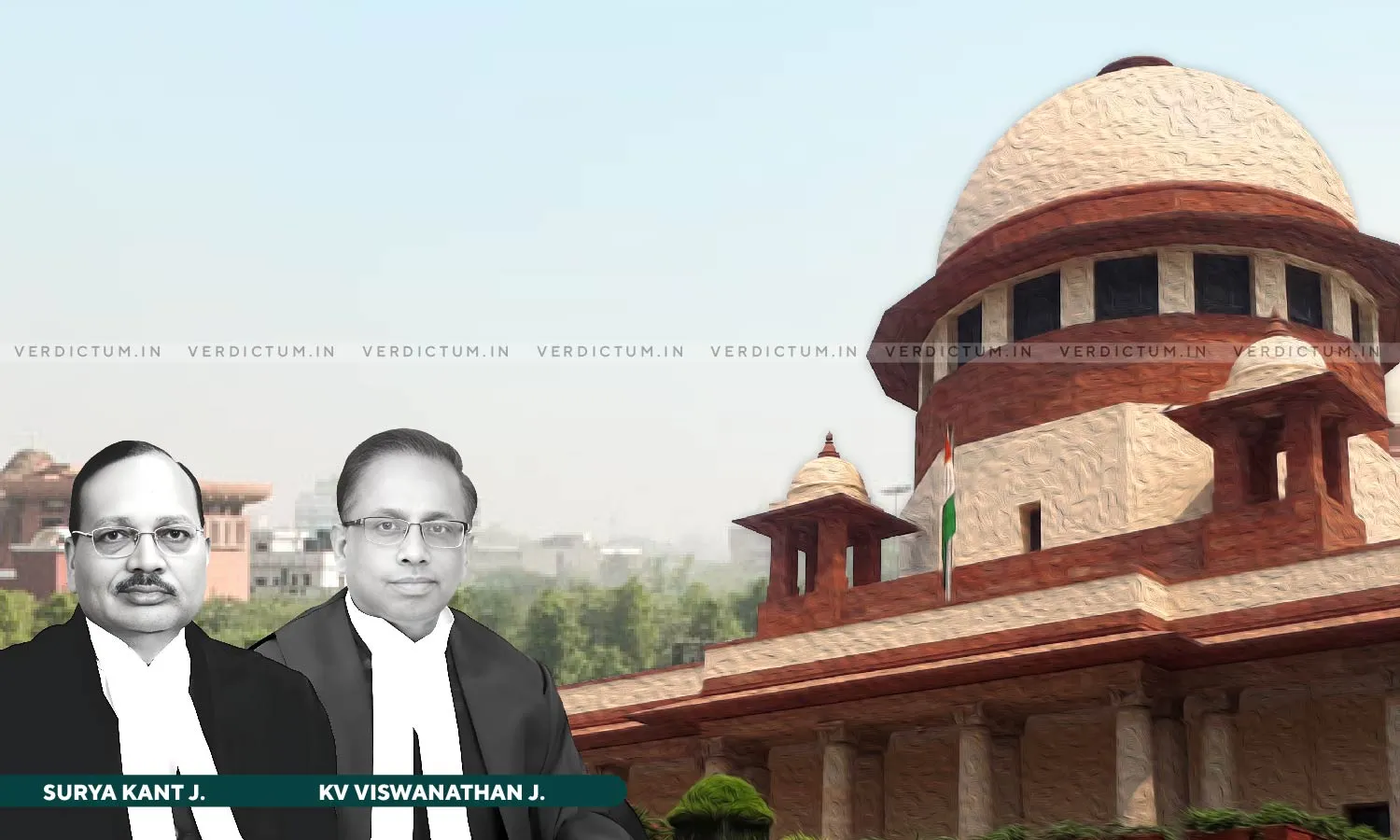Sale Deed By Landowners Cannot Directly Be Relied Upon For Determining Market Value Of Land: SC Applies Principle Of Guesstimation To Enhance Land Acquisition Compensation
The Supreme Court granted an enhanced compensation to the landowners based on the principle of ‘guesstimation’ while observing that a sale deed produced by the landowners cannot directly be relied upon for determining the market value of the land.
The Court resorted to the settled principle of guesstimation as there was no direct piece of evidence to determine fair and just compensation for the landowners whose land was acquired by the State of Uttar Pradesh/NOIDA under the Land Acquisition Act, 1894 (the Act).
A Bench of Justice Surya Kant and Justice K.V. Viswanathan observed, “The evidence led by parties provides several relevant factors, as enumerated above. For instance, while the sale deed produced by the landowners cannot directly be relied upon for determining the price of the land, given its relative proximity, it nonetheless establishes its potentiality in the form of possible use towards residential purposes."
Sr. Advocates Ravindra Kumar and Jitendra Mohan Sharma represented the appellant, while AOR Praveen Swarup appeared for the respondent.
The primary issue in the case was around the quantum of compensation granted to the landowners, and the inconsistency and disparity in the amounts awarded at different stages of the judicial process.
The acquisition process began with a notification issued under Section 4(1) of the Act for land intended for planned industrial development. Subsequent declarations under Section 6, in conjunction with the 'urgency clause' of Section 17, led to the possession of the land.
Initially, the Land Acquisition Officer (LAO) fixed the compensation based on a sale deed. However, dissatisfied landowners sought enhanced compensation.
Further appeals by the landowners to the Allahabad High Court resulted in an increase in compensation. NOIDA's appeals against these enhancements culminated in a judgement by the Supreme Court in Bir Singh v. State of Uttar Pradesh (2017), setting the compensation based on landowners’ prayer for parity as under Section 28A of the Act.
The landowners thus sought parity with Bir Singh (supra) and the resultant enhancement of their compensation. On the other hand, NOIDA also filed multiple appeals challenging the High Court judgements that were decided on the anvil of Bir Singh (supra).
The Supreme Court explained that the decision in Bir Singh (supra) was not revisited by the Apex Court while exercising Review and Curative jurisdictions likely on account of the practical difficulties in recovering the excess compensation amount already paid to the expropriated land owners and given the larger interest of justice.
“While Bir Singh (supra) thus remains a binding precedent inter-se the parties, it would not bind us because of its sui generis factual position. Given this, it becomes necessary for us to determine the market value of the land independently,” the Court observed.
The Bench observed, “Consequently, invoking our powers under Article 142 of the Constitution with a view to do complete justice between the parties, we deem it fit to enhance compensation notwithstanding the dismissal of earlier Review and Curative Petitions. Moreover, it is clarified that since our analysis above is agnostic to the decision in Bir Singh (supra), we are, therefore, not applying a subsequent change of law, but instead only correcting a judicial error and restoring uniformity in a case involving peculiar circumstances.”
The Court clarified that the mere absence of multiple sale exemplars did not by itself support a conclusion that the market condition was unfavourable or that the lands had stagnant demand and low value, as sellers often hold on to lands whose prices are in the process of increasing or likely to increase in the near future, owing to urbanisation or other upcoming development projects and changes.
Consequently, the Bench held, “Without disturbing the ratio of Bir Singh (supra) and the compensation granted to landowners therein, and with a view to put a quietus on this long-standing dispute, the landowners’ appeals are allowed in part; the appeals by NOIDA authorities against the grant of compensation are also allowed in part, such that the rate of compensation is enhanced.”
Accordingly, the Supreme Court allowed the appeal in part.
Cause Title: New Okhla Industrial Development Authority v. Harnand Singh (D) through LRs & Ors. (Neutral Citation: 2024 INSC 509)
Appearance:
Sr. Advocate Ravindra Kumar; AOR Praveen Swarup and Rachit Mittal; Advocates Parish Mishra, Adarsh Srivastava, Jitendra Mohan Sharma, Sheo Kumar Gupa and Shekhar Kumar; AOR Rajeev Sharma; Advocates Prashant Sharma, Raghuvir Sharma, Dharmendra Sharma, Vipin Kumar Sharma and Anil Kaushik




